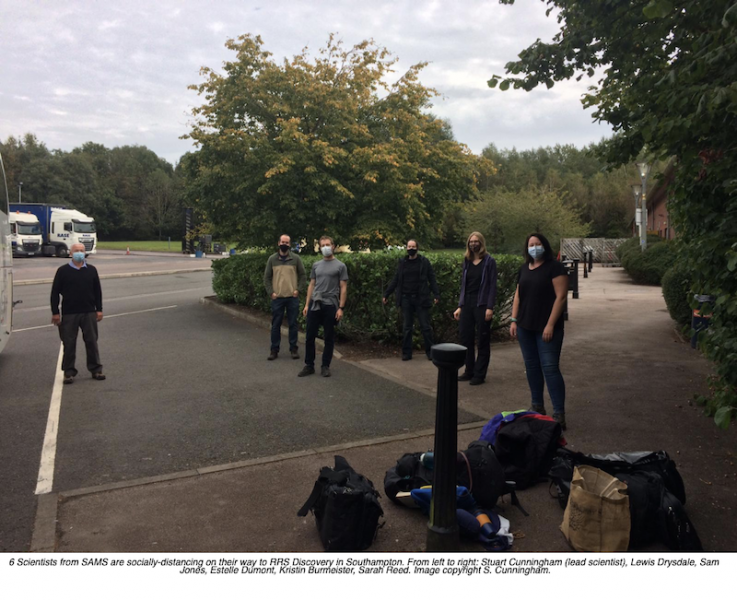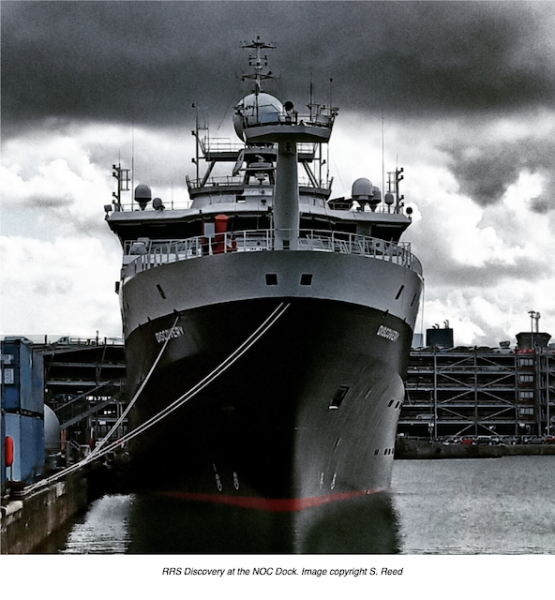Author: Kristin Burmeister, SAMS.
Oban bus station on a Monday morning at 5.30am. Most of the town is still asleep. A big bus is waiting for its passengers to board, the bus which will bring us all to our destination, the research vessel RRS Discovery in the harbour of Southampton. This is it, the start of the research cruise DY120.

It awakes some kind of school trip feeling in me. What is different to the ordinary school trip? No teacher is waiting to coordinate a crowed of school kids, no kid is boarding the bus. Instead the bus is picking up scientists from the Scottish Association for Marine Science (SAMS). The biggest difference, which is also very new to us, we are not many, only six all together, sitting at minimum 2m apart from each other, our faces hidden away behind masks. In September 2020 this is an almost everyday scenario since the world has been hidden by the COVID-19 pandemic. As my colleague Clare summarized it very nicely, this is not an ordinary cruise with a plan A and a back up plan B but with many back up plans B, C, D, E…

The mission of the cruise however stays the same as prior to the pandemic: retrieve equipment in the North Atlantic that has been collecting samples and data over the last two years and install new instruments to continue the measurement time series. The data that we will collect at this cruise are used to monitor the Atlantic Meridional Overturning Circulation (AMOC). The AMOC is a large system of ocean currents that spans the entire Atlantic. Its upper part is transporting warm water towards the North and the lower part cold water towards the South. The transport and mixing of the water in the Atlantic distributes heat across the planet; research suggests the AMOC transport is slowing down and less heat is transported towards the North. This cooling of the ocean is having “measurable impacts” on the summer climate and winter storms. We are concerned about a continuous slow down of the AMOC and its consequences for our climate. This is why our cruise has high priority status and is only the second UK scientific cruise since lockdown.
When we finally arrived in the harbour of Southampton, we were welcomed by Valeria, the purser of RRS Discovery, together with the seventh scientist from National Oceanography Centre (NOC, Southampton). Wednesday morning, 10am the COVID test results arrived from the test we took the day before: all negative. A big relief for all of us. Although we need to socially-distance for 14 days, we can start to unload and install our equipment. Our cruise DY120 finally begins.”